Wen Peng
MA-CDMR: An Intelligent Cross-domain Multicast Routing Method based on Multiagent Deep Reinforcement Learning in Multi-domain SDWN
Sep 11, 2024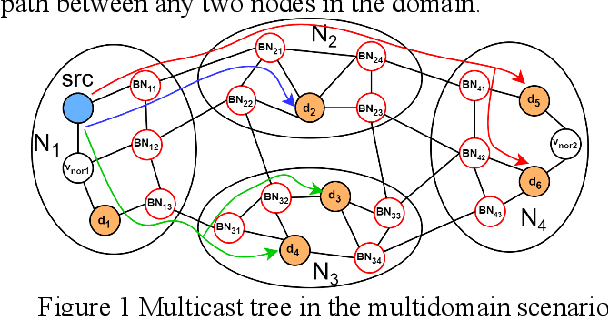
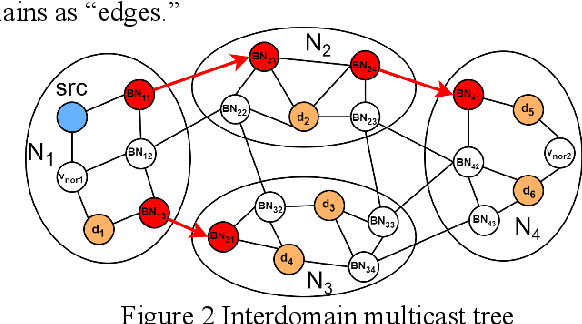
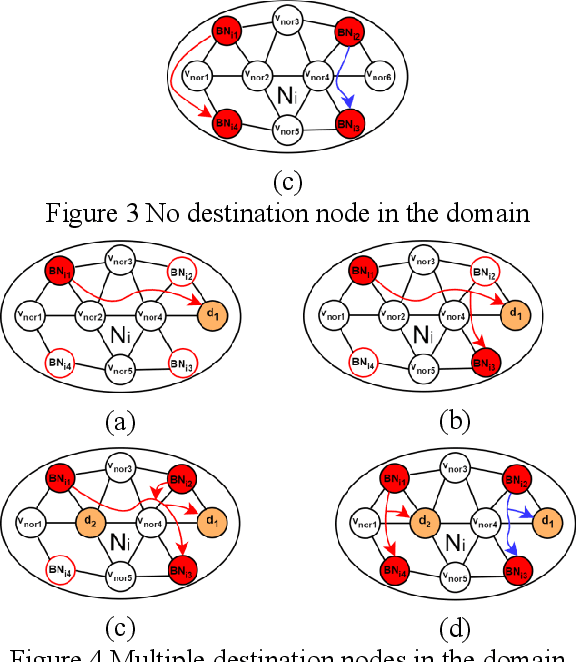
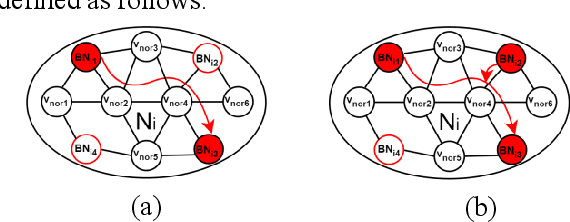
Abstract:The cross-domain multicast routing problem in a software-defined wireless network with multiple controllers is a classic NP-hard optimization problem. As the network size increases, designing and implementing cross-domain multicast routing paths in the network requires not only designing efficient solution algorithms to obtain the optimal cross-domain multicast tree but also ensuring the timely and flexible acquisition and maintenance of global network state information. However, existing solutions have a limited ability to sense the network traffic state, affecting the quality of service of multicast services. In addition, these methods have difficulty adapting to the highly dynamically changing network states and have slow convergence speeds. To this end, this paper aims to design and implement a multiagent deep reinforcement learning based cross-domain multicast routing method for SDWN with multicontroller domains. First, a multicontroller communication mechanism and a multicast group management module are designed to transfer and synchronize network information between different control domains of the SDWN, thus effectively managing the joining and classification of members in the cross-domain multicast group. Second, a theoretical analysis and proof show that the optimal cross-domain multicast tree includes an interdomain multicast tree and an intradomain multicast tree. An agent is established for each controller, and a cooperation mechanism between multiple agents is designed to effectively optimize cross-domain multicast routing and ensure consistency and validity in the representation of network state information for cross-domain multicast routing decisions. Third, a multiagent reinforcement learning-based method that combines online and offline training is designed to reduce the dependence on the real-time environment and increase the convergence speed of multiple agents.
Synthesis and Inpainting-Based MR-CT Registration for Image-Guided Thermal Ablation of Liver Tumors
Jul 30, 2019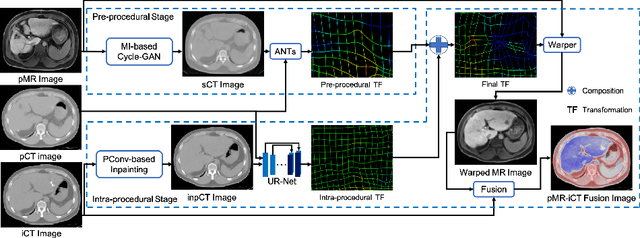
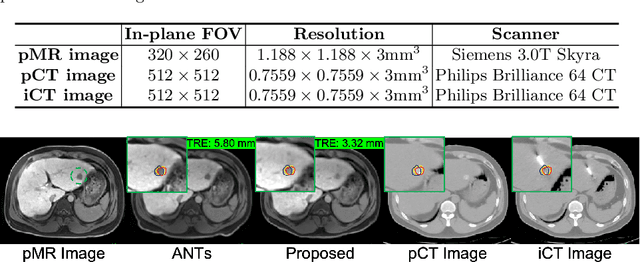
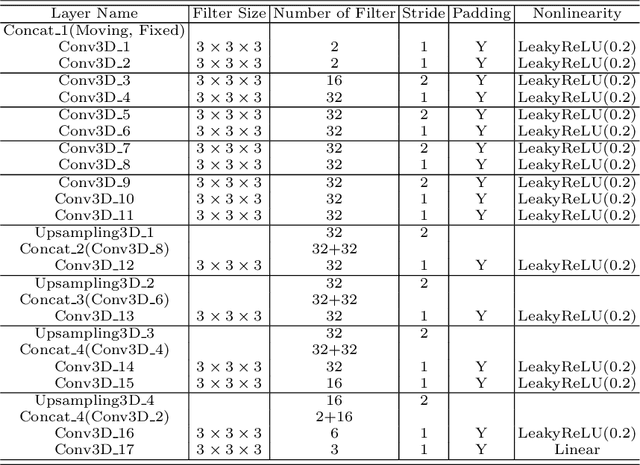

Abstract:Thermal ablation is a minimally invasive procedure for treat-ing small or unresectable tumors. Although CT is widely used for guiding ablation procedures, the contrast of tumors against surrounding normal tissues in CT images is often poor, aggravating the difficulty in accurate thermal ablation. In this paper, we propose a fast MR-CT image registration method to overlay a pre-procedural MR (pMR) image onto an intra-procedural CT (iCT) image for guiding the thermal ablation of liver tumors. By first using a Cycle-GAN model with mutual information constraint to generate synthesized CT (sCT) image from the cor-responding pMR, pre-procedural MR-CT image registration is carried out through traditional mono-modality CT-CT image registration. At the intra-procedural stage, a partial-convolution-based network is first used to inpaint the probe and its artifacts in the iCT image. Then, an unsupervised registration network is used to efficiently align the pre-procedural CT (pCT) with the inpainted iCT (inpCT) image. The final transformation from pMR to iCT is obtained by combining the two estimated transformations,i.e., (1) from the pMR image space to the pCT image space (through sCT) and (2) from the pCT image space to the iCT image space (through inpCT). Experimental results confirm that the proposed method achieves high registration accuracy with a very fast computational speed.
 Add to Chrome
Add to Chrome Add to Firefox
Add to Firefox Add to Edge
Add to Edge